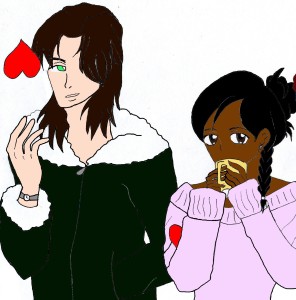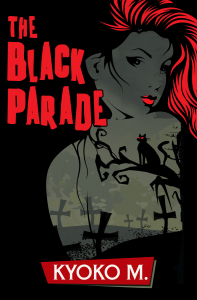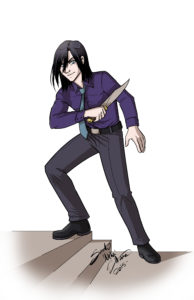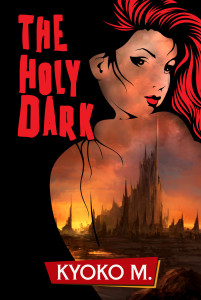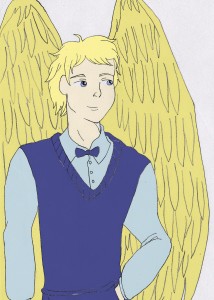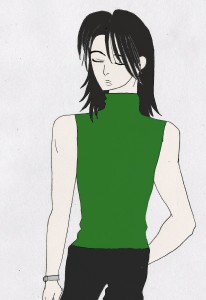In the Christmas spirit yet? If not, maybe this will help. Here’s another edition of headcanons for Team Amador, Christmas-style! In case you’re new to the concept, headcanons are basically little bits of story that happen “off-screen” in the Black Parade universe. In this case, these headcanons take place after the events of The Holy Dark.
Who starts putting up decorations in December? Michael. Especially after the first year Jordan and Michael are homeowners and he’s excited about getting to do normal domestic things that the average family would do. He later ropes Allison into it to help since Jordan isn’t all that interested.
Who buys the advent calendars? Michael.
Who places mistletoe all around the house? Michael. He loves stealing smooches. Jordan tries to take them down, but he always has a secret stash to replace the ones she finds. She thinks it’s annoying, but adorable, like always.
Who wraps the presents for other people? Jordan. Michael tears wrapping paper every time he tries to wrap something, so he sticks to bags and fills them with tissue paper instead. He also will enlist the help of Gabriel, who can flawlessly wrap anything.
Who puts the final angel/star on the top of the Christmas tree? For their years alone, Michael picks Jordan up and lets her put it on theirs. Then it’s always Allison, even though she insists she can do it herself without him helping her.
Who’s the one that hates eggnog? Jordan. She has consistency issues.
Who’s the one that bakes Christmas cookies for guests? Jordan. She’s a fantastic cook and baker, and while she isn’t always in the Christmas spirit, she loves baking.
Who sends out the Christmas cards? Jordan and Gabriel team up to find the right ones. They treat it like a yearly excursion for just the two of them, picking personalized cards and who they’re for.
Who knows all the words to the Twelve Days of Christmas? Michael. Jordan doesn’t like to sing. The only time he can get her to sing is when they take a shower together.
Who is the better snowman builder? Jordan. Michael’s strength tends to make him smush the snow too much, so she has to show him how to make it. Allison is also really good at it and she can make the more detailed sculptures in the snow too.
Who starts snowball fights? Jordan. Every time. She waits until he least expects it and then pounces.
Who’s the one to wake the other on Christmas morning by playing Christmas songs really loud? Michael, of course. He and Allison gang up on Jordan, who hides under the covers and threatens to murder them both if they don’t go away.
Here’s hoping you guys all have a happy holiday season!
